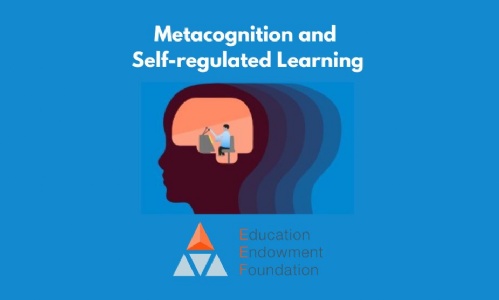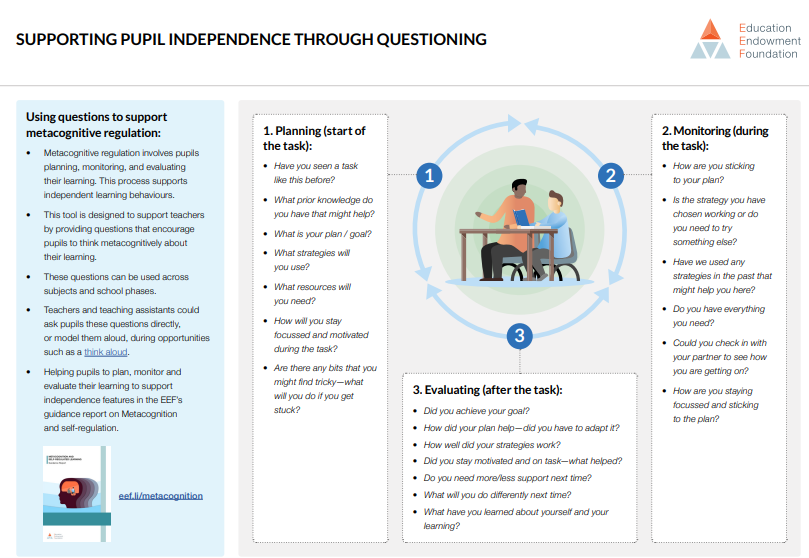“I wish I had thought of that sooner” - The Integrated Model of Metacognition

“Evidence suggests the use of ‘metacognitive strategies’ – which get pupils to think about their own learning – can be worth the equivalent of an additional +7 months’ progress when used well. However, while the potential impact of these approaches is very high, particularly for disadvantaged pupils, less is known about how to apply them effectively in the classroom.”
EEF – Introduction to the Metacognition and Self-Regulation Guidance Report
When, as novice practitioner, I was introduced to the concept of ‘metacognition’, it was presented to me as a process for the end of lesson ‘plenary’ - having summarised WHAT has been learnt, a chance to reflect on HOW it was learnt. Perhaps useful in a limited way, but also usually too late to truly influence learning.
Practice and experience have shown me that it is a more complex process that needs to be integrated throughout the learning process, not just built on to the end. Recently, when working with a group of Teaching Assistants, I used the EEF resource SUPPORTING PUPIL INDEPENDENCE THROUGH QUESTIONING to introduce the plan, monitor, evaluate model of metacognition and illustrate this more nuanced process.

EEF-Questioning-Habits-Tool-1.0.pdf
Because it provides specific examples of questions that can be used at each stage of the process, the TAs we were working with could clearly see how they could implement metacognition into their practice, whether it be with individuals, groups or when teaching whole classes.
We then moved on to talk about the impact of modelling metacognitive processes by ‘thinking out loud’. Recommendation 3 from the EEF's Metacognition and Self–regulated Learning Guidance Report suggests that teachers should verbalise their metacognitive thinking as they work through a learning task And, again, there is an EEF resource SUPPORTING KNOWLEDGE OF SELF THROUGH MODELLING that supports this by providing concrete examples.

Supporting-knowledge-of-self-through-modelling-tools.pdf
We were also able to make links to self-regulation, and the key principles and processes of scaffolding which are central to ensuring the positive impact of the Teaching Assistant role, and avoiding over-dependence on support - and even learned helplessness. For more on that…. Maximising the impact of teaching assistants to better support students | Research Impact - UCL – University College London.
Written by Tracy Goodway, Saffron Teaching School Hub Local Lead for Chelmsford
Read our other blog posts here.
